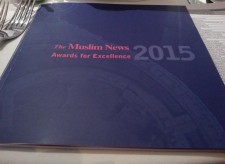G20 Summit Hamburg Germany- July 7, 2017, (Photo: Kremlin.RU/Creative Commons)
The G20 Summit in Hamburg, Germany, this July was riddled with protests, awkward moments between world leaders, and caveats for the novice US leader’s policies. At the conclusion of the summit, 19 of the 20 nations reaffirmed their commitment to the Paris Climate Agreement and signed the G20 Hamburg Climate and Energy Action Plan for Growth. Many leaders expressed their disappointment in the US’s refusal to collaborate in working towards the goal of reducing global greenhouse gas emissions but remained steadfast to their respective commitments.
Before the US announced its decision to withdraw from the historic agreement in June, nations within the G7 had considered loosening certain parts of the deal to appease the US, but after the President Donald Trump’s abrupt withdrawal, the urgency to placate the US vanished, and drafters went ahead with a more robust plan to tackle climate change.
The host of the G20, the German Chancellor, Angela Merkel, received criticism over the violence from protesters during the summit, which somewhat overshadowed the event due to their severity – torched cars, looted shops, and battles with police. Despite the political turmoil within Germany that stemmed from these events, most international leaders were satisfied with the summit, even as they struggled to find their footing dealing with the US’s unpredictable new leader.
UK Prime Minister, Theresa May, was expected to press President Trump on more issues, including the Paris deal, but in the face of Brexit negotiations, kept the conversation to trade deals and security during their formal sit-down.
The French President, Emmanuel Macron, made his distaste of the US’s withdrawal from the Paris Agreement crystal clear. At one point during one of the final sessions, leaders recessed for two hours so that the two nations could battle out details of the climate portion of the final communiqué. The US team wanted to add a clause regarding America’s support for other nations accessing “clean fossil fuels,” which Macron refused.
After the G20, President Trump is set to meet with President Macron in France, who will likely continue to press Trump on climate issues.
The US leader’s “my way or the highway” attitude starkly contrasts the “collaborative spirit” most nations bring and expect at international summits, according to Tom Bernes, former Executive Director of the IMF for Canada. This extreme shift in the US’s role and level of competence, considering its massive economic and military power, makes many leaders uneasy and has them looking elsewhere to form more reliable alliances.
The G20 Hamburg Climate and Energy Action Plan for Growth was signed by all G20 nations, but included a caveat in the preamble stating, “The United States is currently in the process of reviewing many of its policies related to climate change and continues to reserve its position on this document and its contents.” The document’s goals were influenced by the Paris Climate Agreement and the UN Sustainable Development Goals and addressed: collaboration between countries to meet their NDCs (Nationally Determined Contributions) and share best practices in doing so, explore ways to boost economies and eradicate poverty and invest in climate resilient infrastructure.
Merkel deplored the US’s decision to withdraw but felt gratified to know that the other 19 nations deemed the agreement irreversible. The US came to the meeting ill-prepared, without an articulated agenda or even hotel accommodations. Trump still seems to be in campaign mode, believing that he will thrive standing apart from conventional politicians in all of his decisions, but the decision to leave the Paris Climate Agreement has not made him many friends or fostered much trust, internationally. Leaders spent years and made concessions in order to make the Paris Agreement a reality – and doing so felt like a triumph in the face of catastrophe. Therefore, for the novice leader of the nation that emits more greenhouse gases per capita than any other, to abruptly release himself from all commitments, fostered a bitter feeling, especially considering that goals are voluntary and not legally enforceable.
Donald Trump would be wise to reassess his strategy of bamboozling his way into the hearts of those he spends very little time with and realise that his every move is scrutinised and has geopolitical repercussions. The entertainment value of his adversarial nature will hinder him when it comes to implementing real policy, or connect with leaders with whom he could actually do good work.
Sarah Sakeena Marshall, B.S. Environmental Science & Policy
















